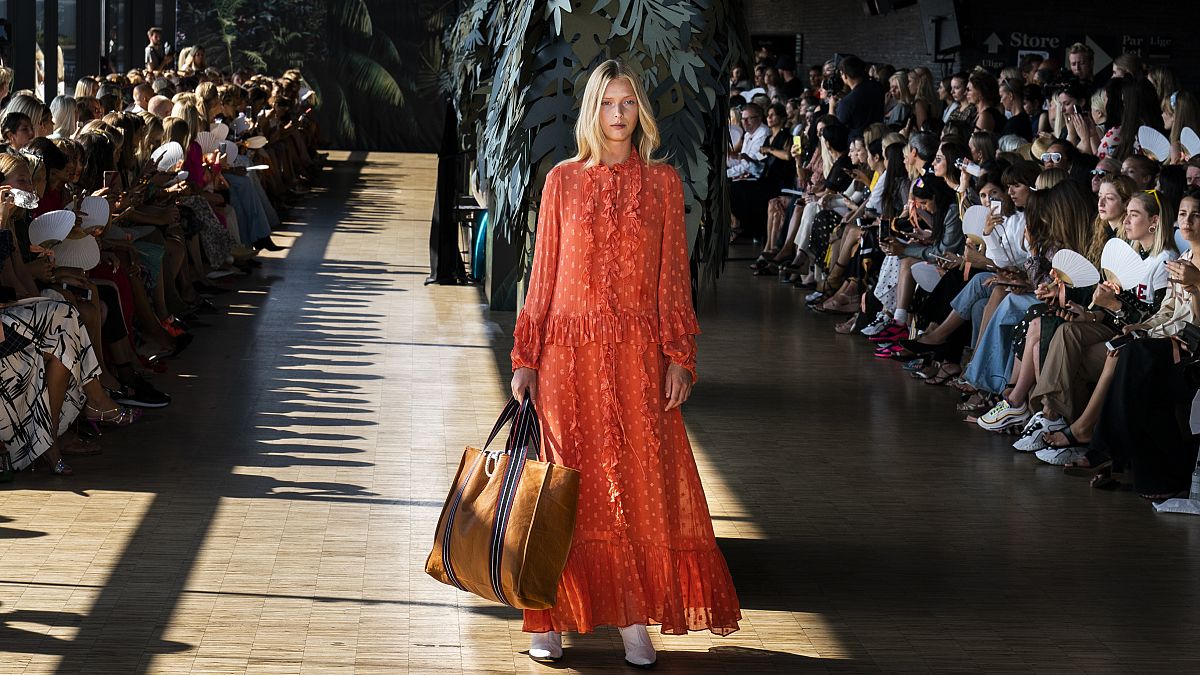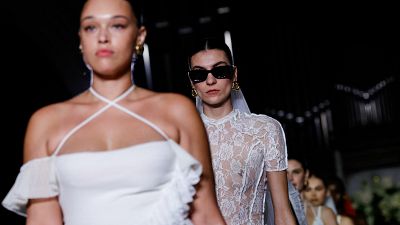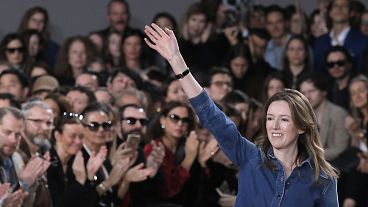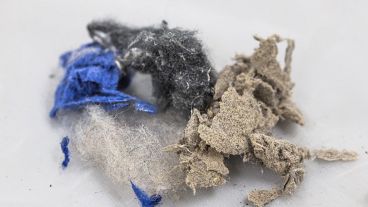With the fashion industry a leading cause of the climate crisis and a call for sustainability being more important than ever, Copenhagen Fashion Week's focus on ecologically sound fashion gives a glimmer of hope towards a brighter future.
Today sees the end of one of the biggest fashion events in Northern Europe and the fifth in the global fashion week cycle: Copenhagen Fashion Week. What makes this particular event memorable is the high importance the show places on sustainability.
As described on their website, the event strives towards making substantial changes to inspire and encourage the industry to accelerate sustainability efforts.
In 2020, Copenhagen fashion week put in place a three-year Sustainability Action Plan. This meant that the brands willing to take part in the show needed to meet the innovative sustainable requirements implemented by the plan. These requirements are revised and released every three years to stay on top of sustainability needs.
Euronews Culture takes a look at three emerging designers from this year's show, designers whose core design ethos meets and innovates sustainable fashion.
A. ROEGE HOVE
Brand A. ROEGE HOVE, a finalist for the Woolmark Prize (a prize that praises brands for showcasing the versatility of Merino Wool - a 100% natural and biodegradable material) kicked off the event with a show all about experimentation.
The brand specialises in knitwear and is defined as innovative, as it challenges tradition by experimenting with creative knitwear techniques. The brand is sustainable as they only produce in Europe. This ensures a level of quality and responsibility, as well as fair working conditions.
Each piece is designed to produce as little waste as possible. Overall, the brand's main aim is to create durable garments that can remain a wardrobe staple. As seen on the runway, the brand stayed true to its word by adding Circulose, a material made from 100% textile waste, to its list of fabrics.
Henrik Vibskov
Founded in 2006, the Henrik Vibskov boutique is a brand created by Danish fashion designer Henrik Vibskov himself. For his Copenhagen Fashion Week runway, Vibskov stayed in tune with his sustainability values by paying homage to agriculture. He always makes sure his garments are ecologically conscious by standing by seven codes of conduct. These range from respect for all races, sexualities and religions to making sure 90% of his production is made in Europe.
He uses ecologically aware fabrics when possible and upcycles otherwise wasted fabrics. He also uses recycled packaging and makes sure of fair working conditions.
The looks seen on his Copenhagen Fashion Week 2023 runway stand by his values. According to the dedicated to ethical fashion digital forum futurevvorld, 72% of his garments used recycled polyester and his outerwear was made from recycled PET bottles. A process that saves water, energy and virgin raw materials. The collection incorporated natural fabrics, all of which were sourced in Europe.
Paolina Russo
Also an International Woolmark Prize finalist and winner of the newly created Zalando Visionary Award at Copenhagen Fashion Week, the London-based brand Paolina Russo is making quite the name for itself.
Founded by Paolina Russo and Lucile Guilmard, the brand is a mixture of Russo’s rural upbringing in Canada, and Guilmard’s French folklore beliefs. Its rise in popularity can be a result of its unique innovation, sustainability approach and use of thought-out craftsmanship.
For its Copenhagen Fashion Week runway, the brand drew inspiration from the founders' escapist teenage daydreams and folkloric fantasies, as well as the mystique of stone circles.
On the subject of sustainability, the brand told British Vogue it uses deadstock materials and low water-intensity fabrics and production processes. It prioritises transparency and traceability of raw materials as well as only partners with certified manufacturers. It also designs with an item's post-consumer journey in mind by using biodegradable natural fibres. When it comes to reducing the environmental footprint, Russo and Guilmard say: "It’s not just about making beautiful clothes, but about shaping a future where fashion and environmental responsibility can coexist seamlessly."
Copenhagen Fashion Week 2023: 7 – 11 Aug 2023.



